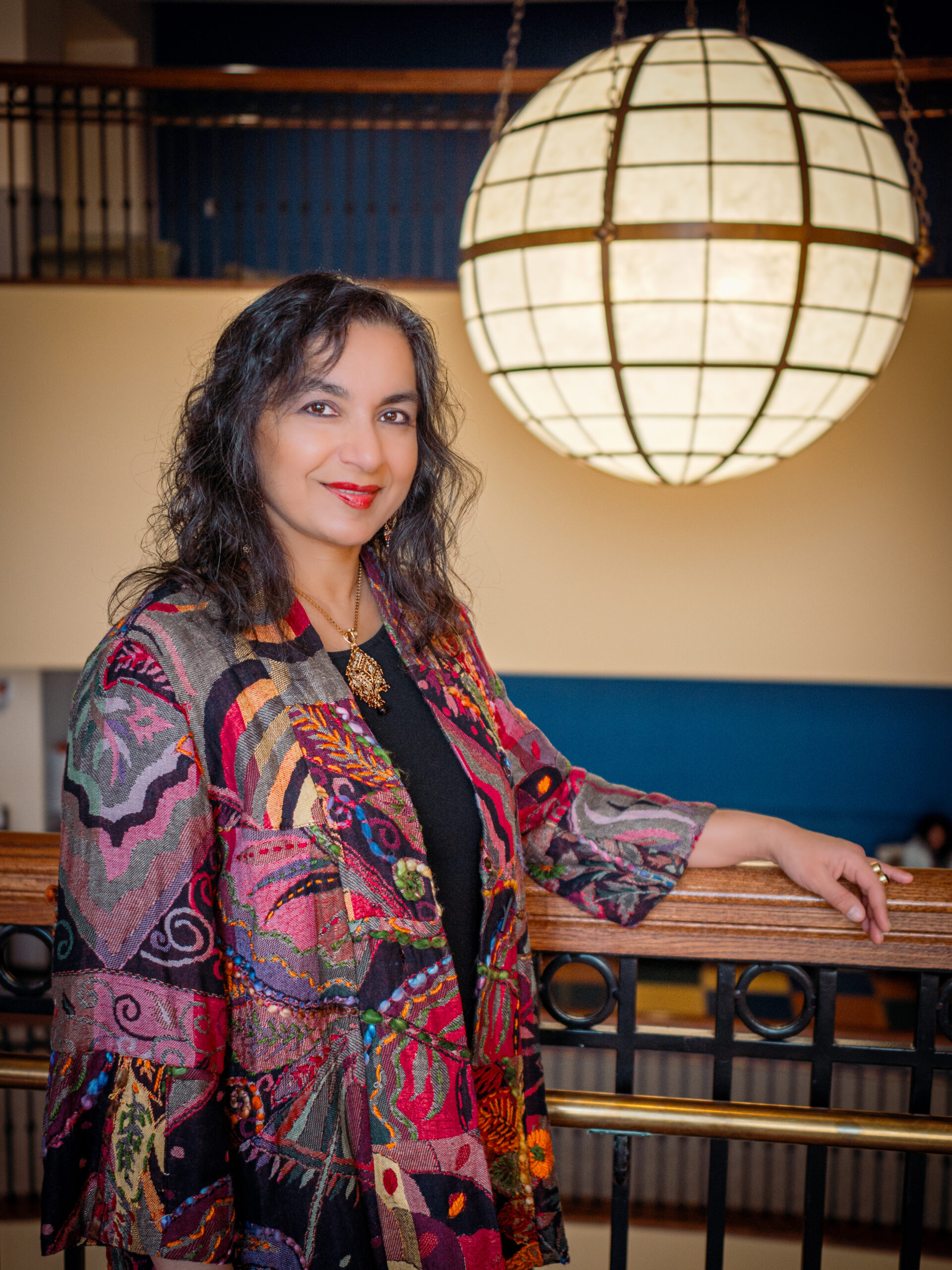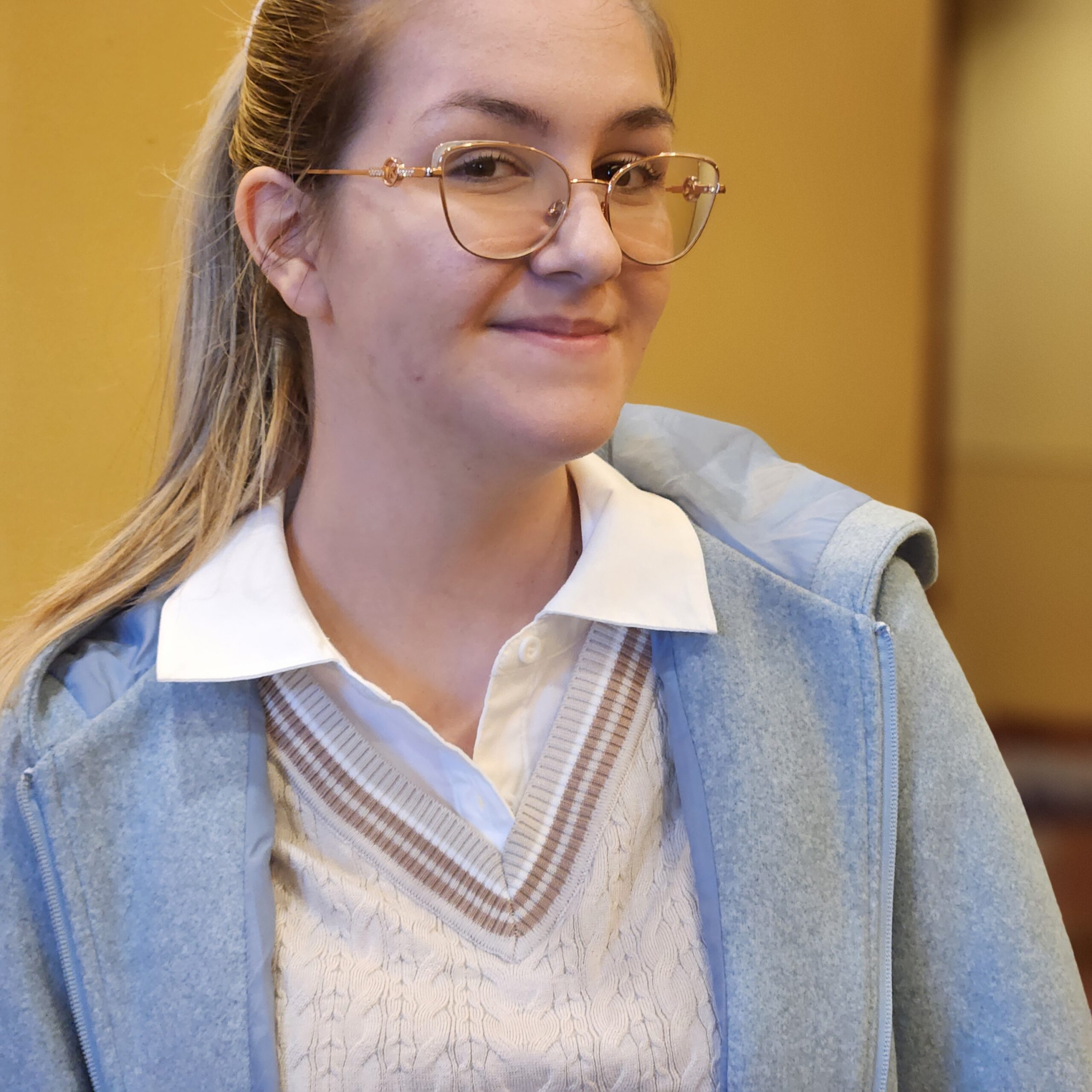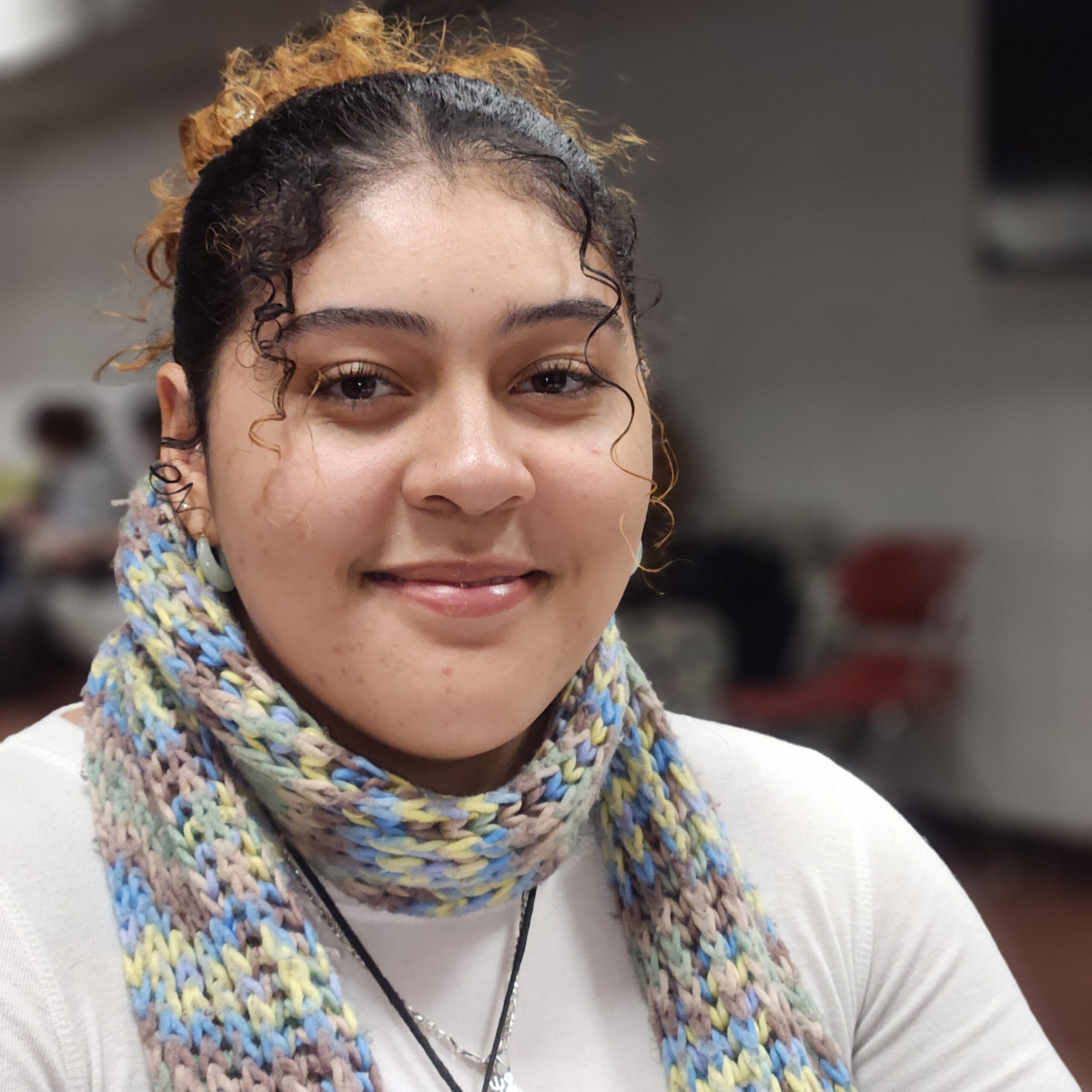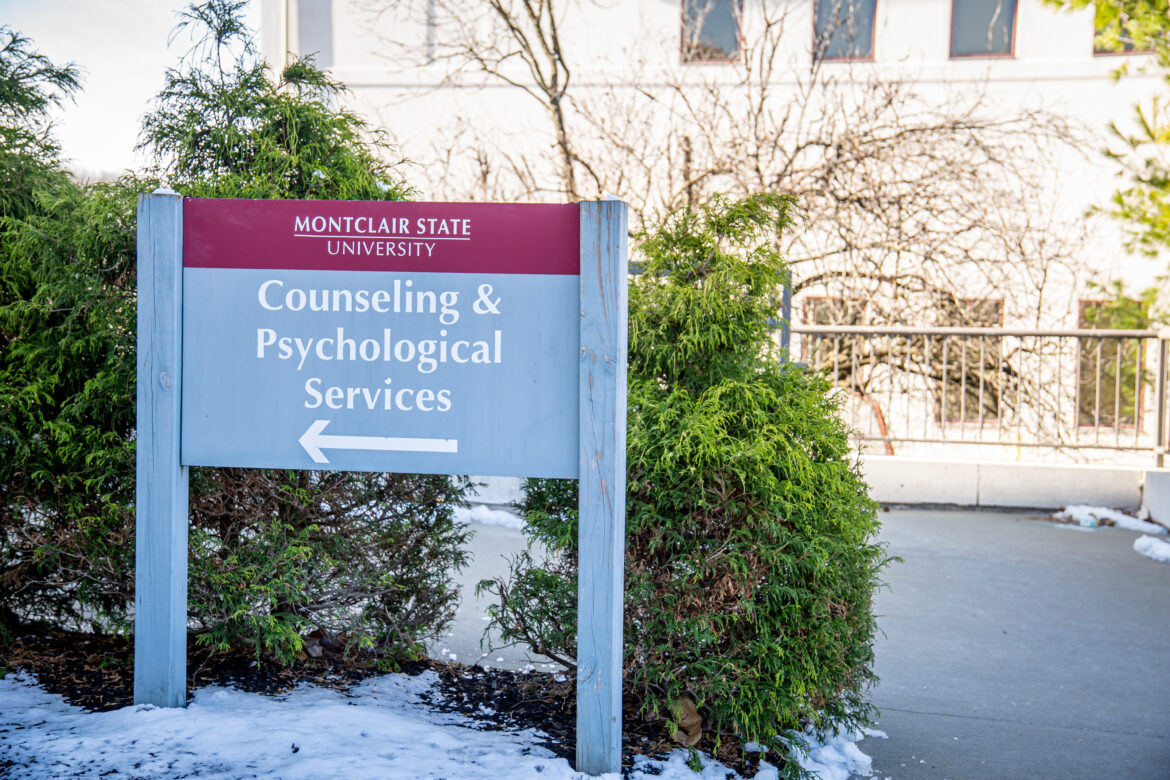This Montclair State University outreach program lends a listening ear to people looking for moral support.
The Let’s Talk program offers confidential consultations with licensed counselors at locations at the Montclair State and Bloomfield College campuses. The initiative is offered by the university’s Counseling and Psychological Services (CAPS). The free service entails one-on-one confidential consultations with CAPS counselors through in-person and virtual meetings.
The sessions are given during 90-minute weekday windows on a walk-in basis or by internet. Let’s Talk has nine Montclair State campus sessions, three of which are on Zoom. The Bloomfield College campus has four meeting times. Three of them are offered with simultaneous virtual/non-virtual availability. The fourth is conducted on-site.
According to Dr. Sudha Wadhwani, CAPS psychologist and Let’s Talk coordinator, the counseling service is open to all current university students. Nonetheless, faculty and staff members can consult the outreach with concerns about students. Faculty and staff can also walk students down to meetings with clinicians.
Further information about Let’s Talk’s times and locations is available at the CAPS website. Inquiries can also be made by calling CAPS at 973-655-5211.
Wadhwani elaborated on Let’s Talk during a recent interview at the CAPS main office in Russ Hall. Wadhwani said she founded the program in January 2010. She said the endeavor was modeled on a support service started by Cornell University.
According to Wadhwani, the outreach addresses a big need in the university community. Students often face many stressors during their academic life. Just some issues are anxiety, academic performance pressure, social relationships, and self-esteem. Other matters include romantic breakups, depression, roommate conflicts, and personal problems.
Wadhwani said the rigors of collegiate life can trigger trying situations.
“Our Montclair [State] students juggle so much,” Wadhwani said. “They are juggling their classes. They often have part-time jobs; sometimes on campus, sometimes in the community. Many have commutes, and it can take hours by bus and train to get here from their homes. Those that may have cars juggle stress around the parking. And, on top of that, there’s very little time to engage in extracurricular activities and in student clubs and organizations.”

Portrait of Dr. Sudha Wadhwani. Karsten Englander | The Montclarion
The psychologist said more people have been feeling more comfortable about approaching Let’s Talk.
“In recent years, particularly secondary to the COVID pandemic, we have seen in increase in mental health utilization, and a decrease in mental health stigma, which has been good to see,” Wadhwani said.
According to Wadhwani, for the 2023-2024 academic year, Let’s Talk fielded a total of 466 visits. In the fall 2024 semester, the program saw 320 persons at its Montclair campus’ nine locations. There were 265 in-person visits, and 55 Zoom consultations. In the same period, Let’s Talk also received 20 Bloomfield campus visits.
Wadhwani said the outreach’s diverse sites give the university community easy means of contact.
“The mission of Let’s Talk is to increase access to support for students who otherwise may not be coming to our main CAPS office here in Russ Hall,” Wadhwani said. “`We strategically have developed our locations to increase access on different parts of campus, as well as locations where there is a strong flow of students. Also in departments where students may underutilize our mental health services here at CAPS.”
Wadhwani said Let’s Talk partners with various university departments to furnish a range of walk-in sites. She said the collaboration is essential to providing easy-access meeting sites for students.
Wadhwani said the help service strives to connect with students in need.
“I often call it ‘taking the couch on the road,’” Wadhwani said. “We want to reach them where they are, and reach those students that may not be ready yet to come to us.”
Wadhwani said the Let’s Talk experts are sensitive to the scenarios they encounter.
“I would say [the point of Let’s Talk is] validating, giving [students] support, listening to their concerns, and supporting them in the way they need, so it depends on the concern and what that student is needing,” Wadhwani said. “[It’s about] really hearing them, listening to them, helping them feel heard and understood and providing whatever it is they are looking for.”
Wadhwani said a Let’s Talk intervention can yield a remedy for a personal difficulty. She said the solution may entail psychoeducation, specific tips, coping skills, or problem-solving feedback.
Wadhwani said the program employs a dozen state-licensed counselors. She said all clinicians have, at least, a master’s degree. She said Let’s Talk has therapists with doctorate degrees as well. She said another requirement is education in either psychology, social work, or counseling.
Wadhwani said individually focused counseling can prevent greater predicaments down the road.
“Let’s Talk is a prevention program, and the hope is that we reach students when they’re experiencing challenging situations before it builds up to a crisis level,” Wadhwani said. “The more we can reach students early on, the more they will connect to clinical services earlier before they get to a crisis point.”
Looking ahead, Wadhwani said she anticipates Let’s Talk expanding its horizons. She said she hopes the outreach will regain its spot in the university’s flagship building. The support service, she said, lost that site after the spring 2024 semester due to space constraints.
“We hope to continue to grow, and we would like to go back to Cole Hall in the fall 2025 semester,” Wadhwani said. “It’s a goal that we’re working on. We hope to be in Cole Hall because they are many other departments like [the Educational Opportunity Fund program] and [the Disability Resource Center].”
Lea Spasic, a sophomore accounting major and Student Government Association legislator, said the counseling resource’s availability is beneficial for the Montclair State University.
“I think the options they offer for Let’s Talk is also very good,” Spasic about the choice of in-person and online consultations. “It accommodates most of their needs. As someone from the SGA as well, we find them very helpful, and we collaborate with them a lot.”

Lea Spasic, a sophomore accounting major and Student Government Association legislator, said the counseling resource’s availability is beneficial for the Montclair State University.
Thomas Boud | The Montclarion Photo credit: Tom Boud
Spasic said that undergraduates should utilize Let’s Talk when needed since the offering is free of charge.
Kayla Linares, a junior psychology major, said the counseling outfit is “really beneficial to the students.” She said the support service benefits problem-facing students who have trouble finding solutions.

Kayla Linares, a junior psychology major, said the counseling outfit is “really beneficial to the students.”
Thomas Boud | The Montclarion Photo credit: Tom Boud
Linares said she feels Let’s Talk provides much needed on-campus counseling to students. She said the resource is more available than costlier off-campus options.
“It’s a great benefit to have something so easily accessible and equitable at that because it is really hard to find the treatment you need in the real world,” Linares said. “It’s really hard to find that also within the right price range. These are college students, so realistically, we are just trying to get our financial footing.”



